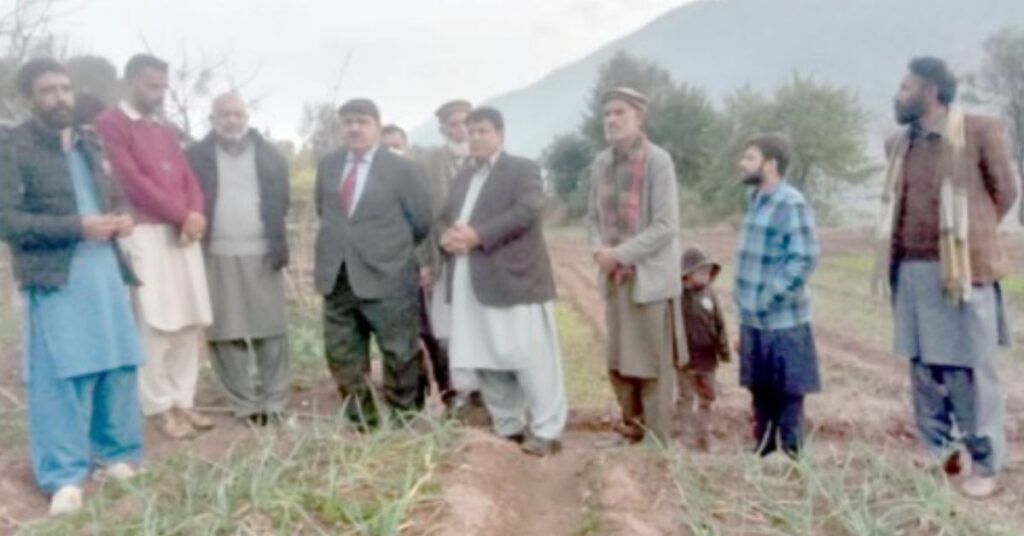MIRPUR (Kashmir English): The Azad Jammu and Kashmir (AJK) Livestock Department has taken strict measures to prevent the spread of foot-and-mouth disease in the region, as the fatal viral disease has been affecting domestic animals, including cows and goats, to death.
The check posts have been set up at the entrances of the Mirpur district, including Mangla, Jatlan and Dhan Gali Bridges, to prevent the spread of foot-and-mouth disease following the directives from Secretary of Agriculture, Livestock, Irrigation and Small Dams Chaudhry Imtiaz Ahmad and Director General of Livestock Dr. Muhammad Ijaz Khan.
According to the details, Assistant Director Animal Health and Veterinary Services District Mirpur Dr. Khalid Qayyum Butt made a surprise inspection of the check posts of the Livestock Department established at Mangla and Jatlan Bridges.
Principal Veterinary Officer reviewed the performance of the staff on duty and observed the process of scrutiny of animals brought from outside Azad Kashmir. He strictly instructed the staff to fully implement the given instructions.
Speaking on the occasion, Dr. Khalid said that reports of cattle being affected by foot-and-mouth disease are being received across the country.
As per the official statement, the AJK government has been doing free vaccination against this disease for the past three years; however, there is a fear of the disease spreading due to the arrival of animals from outside Azad Kashmir.
In view of this, checkpoints have been set up at all entry points, and staff have been instructed that animals with foot-and-mouth disease should not be allowed to enter the region. “Animals with the vaccination certificates should be allowed before entering Azad Kashmir.”
Principal Veterinary Officer Mirpur said that teams have been formed in this regard under the leadership of veterinary officers. He has also appealed to the public to cooperate with the Livestock Department and urged them to request vaccine certificates from the trader when purchasing animals.
He further urged the public to contact the nearest veterinary centre in case of any animal showing signs of disease.




